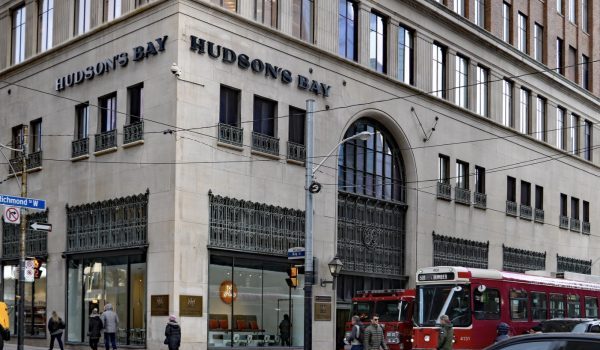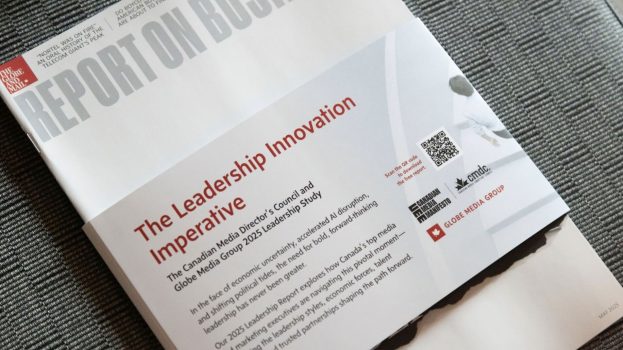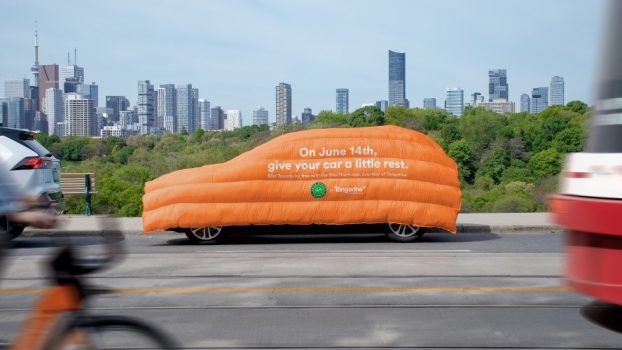Also in this report:
p33 Chinese-language calling card gets warm reception
p34 Amex makes aggressive bid for credit card market
p37 Parks adding value with calling cards
p37 Phone card conference slated for Toronto
Canada’s major financial institutions are now working the bugs out of their competing electronic cash card systems, in preparation for a year of testing in 1997.
Canadians are expected to readily accept electronic cash, just as they have other alternative payment technologies, such as debit cards.
An estimated 690 million-plus debit card transactions will occur in Canada this year – equal to the number of transactions in all of the u.s.
Could those loonies and toonies now weighing down our wallets (and the possibility of a five-dollar coin somewhere down the line) be the reason for our embrace of plastic alternatives?
It’s certainly one factor, say bank executives – but so, too, is ease of use and added security for both consumers and merchants.
The complete national rollout of electronic cash is probably about five years away, says Carolyn Burke, manager, marketing and product development, stored value cards, for Royal Bank Financial Group.
Experience with debit cards, she says, suggests that it will take that long ‘to get decent saturation of electronic cash, where the number of consumers using the product goes beyond early adopters.’
Mondex, Exact and Visa Cash are the three electronic cash systems now at the starting gate.
All three systems use as their base cards which have computer chips embedded within them for storing cash value electronically.
Visa Cash and Exact are designed for transactions under $20, while Mondex positions itself as the same as cash.
Tracy Norman, senior manager, smart cards, for Canada Trust, one of the institutions involved in Exact, says research shows that most purchases made with debit cards are in the $20 to $50 range. In the $20-and-under range, 85% of all payments are still made with cash.
Visa Cash began a limited test of pre-paid, disposable, non-reloadable cards at the beginning of this year in Toronto, Vancouver and Montreal.
Pradep Narayan, product manager, marketing, for Visa Cash, says it is being positioned as a card for transactions under $10.
Approximately 80 fast-food and convenience store merchants are participating in the three cities.
Narayan says Visa Cash is looking to expand next year into one or two more cities, and to encompass larger consumer and merchant bases. A vending machine application should also be in place soon.
While there has not yet been any Canadian advertising, it should come early next year, with the expansion of the test. Leo Burnett is the Visa Cash agency.
Visa Cash has a three-card strategy, Narayan says. In addition to the disposable stand-alone card, it plans to introduce a reloadable card early in 1997, and eventually a multi-purpose card that will combine cash card and credit card functions.
The financial institutions participating in the Visa Cash test are Toronto-Dominion Bank and The Bank of Nova Scotia in Toronto, Vancouver City Savings Credit Union in Vancouver and Les caisses Desjardins in Montreal.
Unlike Visa Cash, Mondex and Exact are reloadable cards. Both are planning national rollouts for 1998.
Of the two, the Exact card product is a more bare-bones offering, but the participating financial institutions expect that by the six-month mark of the test, they should have a better sense of what additional features consumers would like to see added.
Exact is positioned as an alternative to cash for purchases under $20.
The Exact card alliance includes Toronto-Dominion Bank and Bank of Montreal, along with Canada Trust, which joined the partnership in September.
Norman says the bare-bones approach is what brought Canada Trust into the Exact fold.
‘We felt it was important from a consumer understanding and acceptance perspective to start with a system that can be done in its simplest possible form,’ says Norman. ‘As consumer acceptance and demand increase, then the platform we’ve chosen will allow us to grow, and additional services can be offered.’
Exact plans to start its consumer test this month in Kingston, Ont.
Bates Canada has been chosen to handle advertising for Exact. A campaign will launch in conjunction with the test.
Steve Phillips, manager of smart cards and access cards for td, says Exact advertising will promote it as an alternative to small bills and coins.
‘It doesn’t force you into anything,’ he says. ‘This is not the downward slide into a cashless society. You tell us carrying coins is a hassle, so we’re going to give you an alternative.’
The technology behind the Exact card is Proton from Banksys, Belgium’s equivalent to Interac.
For the purposes of the pilot, devices for loading and reloading the cards will be located in areas where the three participating financial institutions have their abms.
Mondex in Canada is a partnership of the Royal Bank and Canadian Imperial Bank of Commerce.
The Hongkong Bank of Canada is a Mondex licensee and will join the national Canadian rollout in early 1998.
Joe Clark, spokesperson for Mondex in Canada, says for a system like electronic cash to work, it has to be as close to cash as possible, ‘because people use cash in a variety of ways.’
Mondex began a system test in Guelph in mid-September, with employees from both banks as well as Bell Canada and the City of Guelph taking part, along with 50 local merchants.
The card is reloadable through abms or telephones. Cash can be transferred between individuals via a special wallet.
Carolyn Burke says Mondex has decided, on the basis of research and focus groups, to concentrate its marketing efforts on highlighting three primary benefits.
The first is convenience at point of sale.
‘It’s the easiest benefit to start out with, but not necessarily our long-term positioning,’ says Burke.
‘We will then be looking at other things Mondex does really well, especially in comparison to other stored-value cards. Accessibility by phone, once people appreciate the convenience at point of sale, becomes very important.’
Print and radio advertising from Bozell Palmer Bonner of Toronto will coincide with the full community rollout of the Guelph, Ont. Mondex pilot in January.
By then, all cibc and Royal Bank abms and 250 pay phones in Guelph will be converted to accept Mondex cards for loading, unloading and transferring electronic cash.
To date, more than 500 retail locations have signed on for the pilot.
A new device being launched with Mondex in Guelph is the Cash Tracker, a multi-function card cover that looks like a small calculator.
At the touch of a button, users can ‘lock’ their card, get the remaining balance, verify that the right amount was deducted and see a record of their last five transactions.
Burke says Mondex research showed that Canadian consumers didn’t feel comfortable using electronic cash if all they could see was their balance, and that they wanted to be able to guard their money against unauthorized use.
Mondex was created by NatWest, the National Westminster Bank of England. An independent payments organization called Mondex International was established in London, England in July, with 17 financial organizations on four continents, including the two Canadian banks, holding ownership.
Pilots are now underway around the world.























